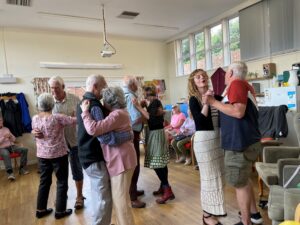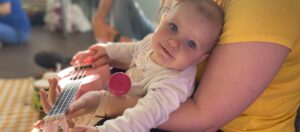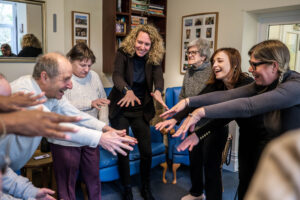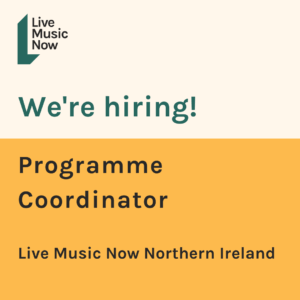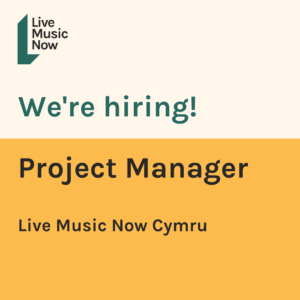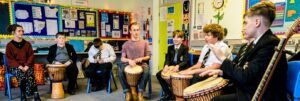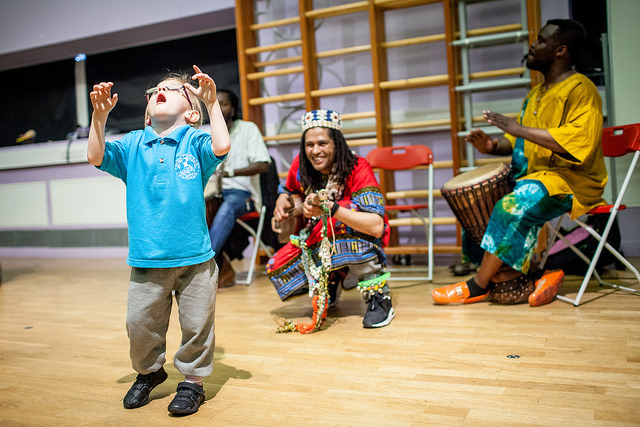
Experts in the fields of music, education, neurology, psychiatry and psychology will gather at a conference at the Royal Society of Medicine in London on Monday 28 November to examine the current evidence for the value and impact of music interventions, especially live music, on health and morbidity in children with learning disabilities.
The conference, which is a collaboration between the RSM and Live Music Now, a pioneer in the arts and health movement, will bring together musicians, clinicians and academics to review the evidence for music intervention in specific child health problems including autism, visual impairment, juvenile dementias and profound multiple learning disabilities.
Evidence that children with visual impairments caused by premature birth are more likely than their fully sighted peers to show unusual musical abilities will be examined by neurologic music therapist Rosie Axon. Founder of award-winning social enterprise Chiltern Music Therapy, Miss Axon will present the initial findings of research undertaken to observe four children with this condition. The data will suggest that three of the children display levels of musical development that are broadly typical for their age, despite most having general developmental delay, while one child is showing early signs of being able to play the keyboard by ear, suggesting an unusual musical precocity. Professor Graham Welch will examine aspects of musical imagery in children who are blind from birth and review recent research to understand the underlying aetiology.
Other conditions to be examined at the conference include the neurodevelopmental disorder Rett Syndrome through a case study presented by the Northumberland, Tyne and Wear Foundation Trust, and Batten disease, a genetic life-limiting neurodegenerative condition that presents as early-onset dementia in children. The initial findings of a three-year study led by the University of Roehampton’s Applied Music Research Centre into how music can enable children in the mid to late stages of Batten disease to regulate speech, control movement, enhance mood and promote social interaction, will be discussed by Rebecca Atkinson, researcher and clinical director of Chiltern Music Therapy.
Professor Pamela Heaton, Goldsmiths University of London and a leading expert on perception and cognition in autism, will discuss experimental, qualitative, neuroimaging and clinical studies to explore questions about how and why music can be used to benefit children with autism.
Professional musicians Rosalind Hawley and Georgina Aasgaard will give insights from their work as musicians in residence in two of the UK’s major paediatric hospitals. Dr Dominic Slowie, National Clinical Advisor for mortality and learning disability at NHS England, will provide the current policy context for reducing health inequalities for people with a learning disability and share examples of how participation in music therapy may help achieve this.
The keynote speech will be given by Professor Adam Ockelford, founder of The Amber Trust and Director of the Applied Music Research Centre at the University of Roehampton, who will set out a new theoretical framework which offers a systematic way of gauging the efficacy of music interventions in children with learning disabilities.
Evan Dawson, Executive Director, Live Music Now, said: “All at Live Music Now are very excited to be working with the RSM on this unique and important event. We are gathering leading clinicians, academics and musicians, to share the latest research and case studies about music for children with learning disabilities including those with life limiting conditions. The potential for new ideas and collaborations is enormous.”
For further information and to register for tickets, please visit: https://www.rsm.ac.uk/livemusicnow16
The Royal Society of Medicine is one of the country’s major providers of accredited postgraduate medical education. Each year, the RSM organises over 400 academic and public events, spanning global health, medical innovation and over 60 medical specialties, providing a multi-disciplinary forum for discussion and debate. Videos of many key lectures are also available online, increasing access to the Society’s education programme. The RSM is home to one of the finest medical libraries in the world, with an extensive collection of books, journals, electronic journals and online medical databases. As well as providing medical education, the Society aims to promote an exchange of information and ideas on the science, practice and organisation of medicine, both within the health professions and with responsible and informed public opinion. The Society is not a policy-making body and does not issue guidelines or standards of care.
Live Music Now (LMN), together with Live Music Now Scotland (LMNS), is a UK-wide music outreach and musicians’ development scheme, established by Yehudi Menuhin in 1977, with Founder-Chairman Ian Stoutzker, CBE. It is inspired by the vision that by embracing the power of music to transform lives, musicians play a central part in a healthy society. LMN aims to bring music through participatory performances and workshops to those for whom access to its benefits is normally restricted, focusing on Wellbeing (particularly older people, including those living with dementia) and Special Educational Needs (particularly children) and to support the professional development of musicians at the outset of their careers, ensuring the highest quality of delivery through a rigorous selection and training process. Across the UK more than 300 musicians from a variety of genres are on the scheme at any one time. Over 39 years, more than two and a half million people have benefited from LMN workshops and interactive performances.
Photo credit: Ivan Gonzalez
